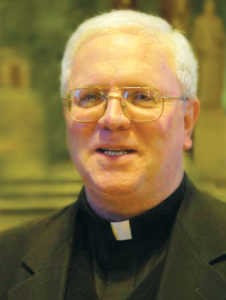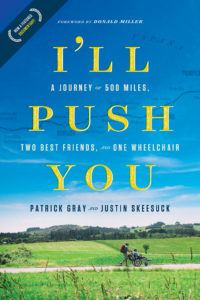LIGHT ONE CANDLE
By Father Ed Dougherty, M.M.
St. Augustine once said, “We are an Easter people and alleluia is our song!” What a beautiful reminder of the joy that accompanies this season of resurrection and redemption.
But being joyful isn’t always easy, even during the Easter season. So how do we get beyond the things of this world that drag us down so we can more fully experience the joy of the Resurrection in our own lives?
Of course, Lent is a preparation for Easter in that we practice detachment in order to open ourselves to the gifts of the spirit. But transitioning from Lent to Easter can sometimes be a challenge. Gathering in celebration with family, friends, and loved ones can help awaken our Easter joy. Something to focus on in these gatherings is making others joyful. This is the way of Christ, to put our own cares aside in favor of serving the needs of others. Before we know it, we will have connected with Christ in such a deep way that the joy of Easter found in our own sacrifices will come alive.
Another way to awaken our Easter joy is to consider the many ways Christ has already affected resurrections in our own lives and in the world around us. Christ’s Resurrection is both a miraculous and an historical event, demonstrating that sin and death have been completely sovercome. But we don’t need to wait around for our own resurrection from the dead to be convinced of Christ’s power at work in the world.
Think of the many times Christ has brought people and situations back from the brink. He does this in our lives all the time. He brings good out of bad situations. He rescues us from failure and opens new doors for us to pursue our own unique calling in life. Consider that, no matter what tragedies have occurred in our lives, each and every one of us stands at a point where God allows us to be for a very specific reason. And when we open our hearts to this reality, the future holds out amazing and life-changing possibilities.
Our Christopher News Note on Easter recounts the story of Benjamin Mofta, a Coptic Christian priest living in Egypt. One day, Mofta and his fellow Coptic priest Samaan Shehata were traveling to Cairo on a pastoral visit when an ISIS terrorist jumped in front of their vehicle and attacked them, injuring Mofta and killing Shehata. Far from allowing this horrible incident to cripple him with fear, Mofta explains, “I feel like I can move even more freely. I just do what God asks of me. Fear would make me passive…. I live my life with Christ. In Jesus, there is no fear of death. Father Samaan is in a good place now with Christ, whom he loves so much.”
Consider the faith it must require to wake up every day in a world of such violence and persecution and stay committed to doing good. This is faith in the Resurrection. It’s faith in a Christ who overcame death. But it’s also faith in a Christ who can help us rise again from every tragedy and setback we face in this life. Living in this way is what it means to be an Easter people. So let’s embrace the opportunity this season provides to realize the Risen Christ at work in our lives, to allow the joy of the Resurrection to enter our hearts, and to share that joy with everyone we meet.
(Father Ed Dougherty, MM, is on the board of directors for the Christophers, a multimedia evangelization ministry.)


